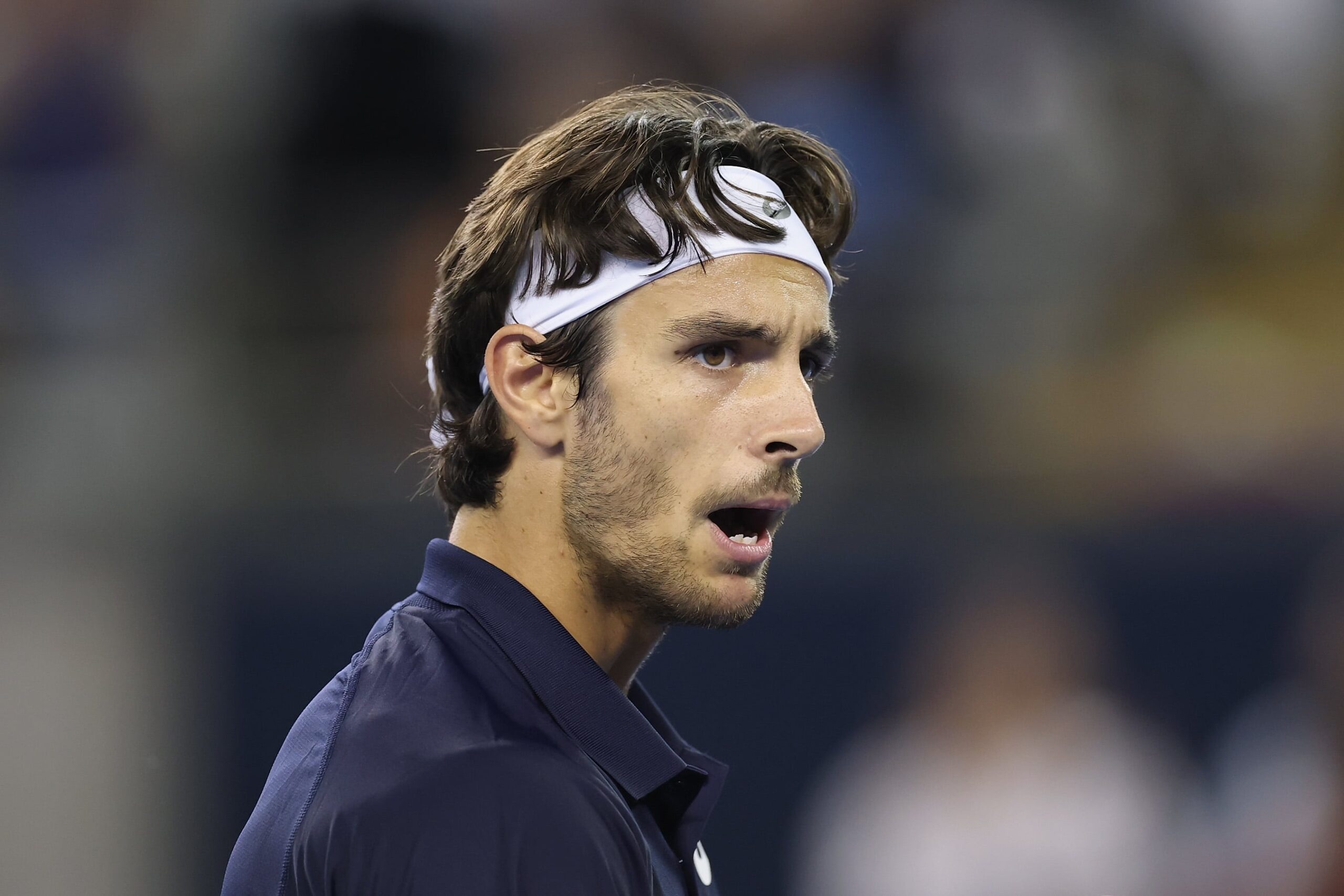Lorenzo Musetti, a rising star in the world of tennis, recently found himself in hot water following an “inappropriate” outburst at the China Open. The young Italian player has since issued an apology to Chinese fans, expressing his regret and emphasizing his respect for the country and its people. This incident serves as a reminder of the pressures athletes face and the importance of cultural sensitivity in international sports.
The controversy began during Musetti’s round-of-32 match against Giovanni Mpetshi Perricard in Beijing. Frustrated by coughing from the crowd, Musetti made a remark that was deemed offensive by many. The comment quickly spread on social media, leading to a wave of criticism and calls for an apology.
In response, Musetti took to social media to express his remorse. In this article, we will delve into the details of the incident, Musetti’s apology, and the broader implications for athletes and their interactions with fans from different cultures.
The China Open Incident: What Happened?
During a match at the China Open, Lorenzo Musetti, became frustrated with the coughing from the crowd. According to reports, Musetti was annoyed by coughing in the crowd during his round-of-32 win. This prompted Musetti to shout a phrase that contained an expletive towards the Chinese people. This outburst ignited controversy, sparking criticism across social media platforms.
The immediate aftermath saw a barrage of negative reactions, with many users on social media accusing Musetti of racism and cultural insensitivity. The comments, widely circulated, threatened to tarnish the player’s reputation and potentially impact his future in the sport.
“I am truly sorry. I respect you deeply, I feel at home here, and I value the warmth and kindness I have always received from you,” Musetti stated in his apology posted on social media, according to the Associated Press.
Musetti’s Apology: A Sincere Attempt at Reconciliation?
In response to the backlash, Lorenzo Musetti issued a formal apology via his social media channels. He expressed deep regret for his words, emphasizing that they were spoken in the heat of the moment and did not reflect his true feelings towards the Chinese people. Musetti acknowledged the hurt caused by his actions and sought to reassure fans of his respect for Chinese culture.
Musetti stated: “I would like to sincerely apologize for what I said in frustration yesterday during my match. My words were directed only at a few individuals in the crowd who were coughing repeatedly and disturbing the play. They were never, in any way, meant for the Chinese people.”
The apology was met with mixed reactions. Some fans appreciated Musetti’s willingness to take responsibility for his actions, while others remained critical, arguing that the damage had already been done. The incident sparked a broader debate about the role of athletes as ambassadors and the importance of cultural awareness in professional sports.
Cultural Sensitivity in Sports: A Growing Imperative
As sports become increasingly globalized, cultural sensitivity has emerged as a critical attribute for athletes. Interacting with fans and communities from diverse backgrounds requires a deep understanding and respect for different customs, traditions, and values. Athletes who demonstrate cultural awareness are better equipped to build positive relationships and avoid misunderstandings that could lead to controversy.
Taylor Townsend also apologized on Sept. 17 for making disparaging comments about Chinese food before the United States played Kazakhstan at the Billie Jean King Cup Finals in Shenzhen, China.
Sports organizations and teams have a responsibility to educate their athletes about cultural differences and promote inclusivity. By fostering a culture of respect and understanding, they can help prevent incidents like the Musetti outburst from occurring in the first place.
Rebuilding Reputation: The Road Ahead for Musetti
For Lorenzo Musetti, the road to rebuilding his reputation among Chinese fans and the broader tennis community will require sustained effort and genuine commitment to cultural understanding. In addition to his initial apology, Musetti can take proactive steps to demonstrate his respect for Chinese culture. This may include engaging in cultural exchange programs, participating in community outreach initiatives, and seeking opportunities to learn more about Chinese history and traditions.
Consistency and sincerity are key to winning back the trust of fans who were offended by his outburst. Musetti’s actions in the coming months and years will be closely scrutinized, and he will need to demonstrate a clear commitment to growth and cultural sensitivity.
Conclusion: Lessons Learned and Moving Forward
The Lorenzo Musetti incident at the China Open serves as a valuable lesson for athletes, sports organizations, and fans alike. It highlights the importance of cultural sensitivity, the power of social media, and the need for accountability in professional sports. Musetti’s apology represents a first step towards reconciliation, but the real work lies in demonstrating a genuine commitment to cultural understanding and respect.
As sports continue to transcend borders and cultures, athletes must recognize their role as ambassadors and strive to build bridges rather than create divisions. By embracing diversity and promoting inclusivity, the sports world can become a more welcoming and harmonious environment for all.

Leave a Reply